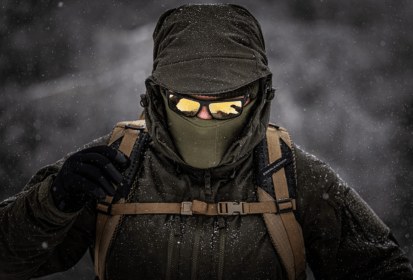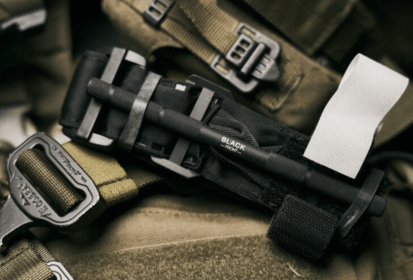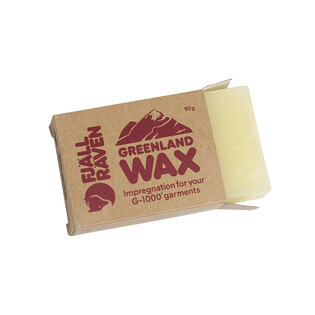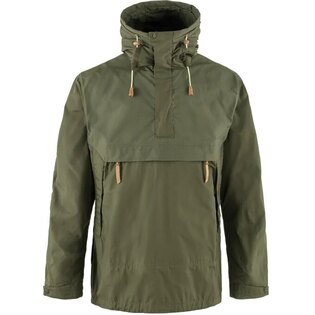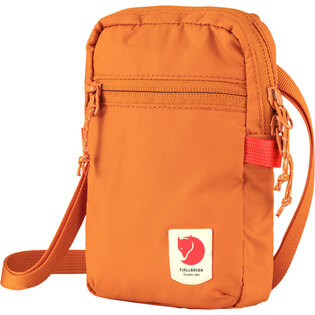Fjällräven: the arctic fox has arrived in our stores
Fjällräven has been a favorite brand of many adventurers since 1960. It offers high-quality and timeless clothing, backpacks, outdoor accessories and equipment that have something that is often missing from today's products – they are built to last! At the same time, Fjällräven stands on strong moral principles such as sustainability and ecological production.
One of the other goals of this Swedish company is to motivate people to go to nature more often, learn to understand it and treat it with respect. Fjällräven products will provide you with the necessary comfort. Thanks to the precise processing and high-quality materials, you can withstand almost anything. In addition, they are not subject to fashion trends, they are universal.
The Fjällräven brand also offers a hunting line of clothing, backpacks and accessories, which is very versatile and its elements can be combined well with each other. One might object if this goes together with the concept of nature conservation. Fjällräven upholds the principle of sustainable hunting with great respect for nature and the ecosystem.
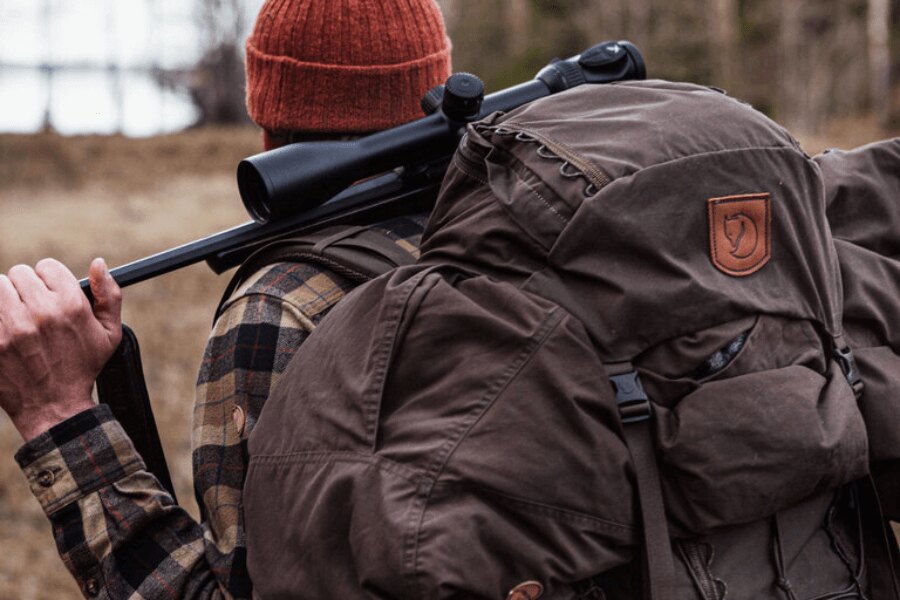
Fjällräven also offers a hunting line of clothing, backpacks and accessories. It supports the concept of sustainable hunting with respect for nature.
No to fast fashion, yes to sustainability
Sustainability is a key word at Fjällräven. And it doesn't stop at words. Everything they do has some effect on the environment. In order to reduce this impact to a minimum, the company only offers such products that are timeless and last in good condition for decades. You can also pass them on from generation to generation.
Fjällräven bets on producing a smaller number of pieces, but of high quality. This means less energy is used and less waste is created. At the same time, the company is committed not to use harmful substances such as PFCs in production, it pays attention to the good treatment of animals, fair treatment of workers and gentle treatment of natural resources.
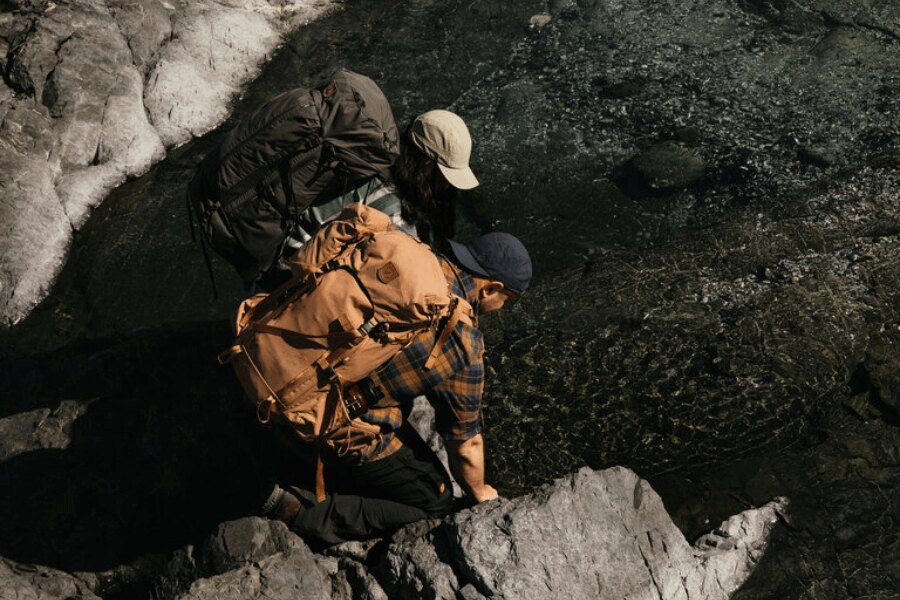
Fjällräven products will really survive anything with you. They are made to last!
Quality and tested materials
- G-1000
The G-1000 material began to be used in 1968. Since then, several versions have been developed, each with specific properties. But what unites them is high resistance, good breathability and, in accordance with the motto of sustainability, also a long service life. The G-1000 material protects against UV radiation and mechanically (thanks to the dense weaving) against mosquitoes, which you will encounter in clouds in the north of Sweden in the summer.
In combination with a wax called Greenland Wax, this material gains resistance to water and wind. The advantage is that you can apply this wax to your clothes yourself according to your current needs. In addition, the wax will increase the mechanical resistance and durability of the fabric, so apply it either to the entire piece of clothing or to exposed areas. You can easily remove the wax by washing (always wash according to the manufacturer's instructions), which gives you an airy piece for warm weather.
- Bergshell
Bergshell is a newly developed material that excels in mechanical resistance. This is due to the combination of densely woven fiber with air-formed yarn in ripstop design. The basis of this material is recycled nylon with TPU lamination. It is a waterproof and at the same time ecologically sustainable material with a water column of 10,000 mm. It was created especially for the needs of alpine tourism and you can also find it on the most durable backpacks for demanding conditions.
- Eco-Shell
Eco-Shell is basically hardshell taken to a sustainable level. The intention was to create waterproof outdoor clothing that does not leave a negative impact on the environment. The offer includes 2-layer and 3-layer versions, while the 3-layer material is protected by a soft lining that warms and wicks sweat away from the body.
TIP: Are you looking for durable outdoor clothing, but are still a bit confused about hardshell, softshell and Gore-Tex? Our article will help you make it clear.
The top layer is impregnated without the use of harmful PFC materials. All layers of the Eco-Shell material are based on recycled polyester. Eco-Shell is stretchy, breathable, mechanically resistant and the water column reaches a very respectable 30,000 mm.
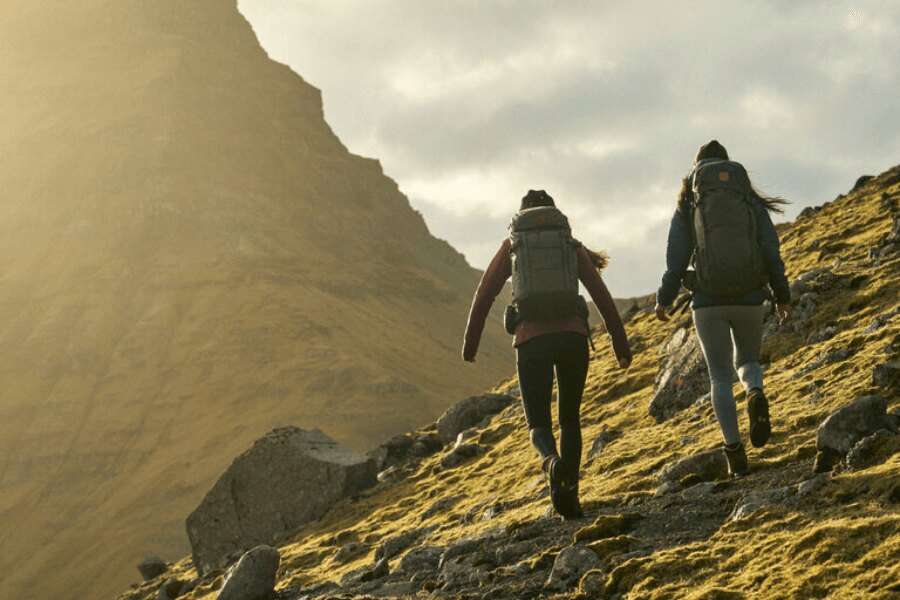
Fjällräven motivates people to get out into nature. Their products will provide you with the necessary comfort.
The story of the Fjällräven brand (or how young Åke was undeterred)
Åke Nordin was born in 1936 in the coastal town of Örnsköldsvik in the north of Sweden. He has always loved nature, mountains and forests. He spent every free moment there and often disappeared from home even for a week. But his expeditions had one flaw in their beauty, and that was the completely insufficient equipment, which limited his movement, it was heavy and shapeless. But anyone who would think that this made Åke comfortable and he prefered to stay at home by the fireplace could hardly be further from the truth.
At the age of 14, Åke invented and constructed an ingenious backpack with an external frame, which greatly facilitated his expeditions. But since the Swedish forests were not nearly as deserted as it might seem at first glance, the woodcutters noticed his invention and begged Åke to make such a backpack for them as well. That's when Åke's entrepreneurial spirit awoke.
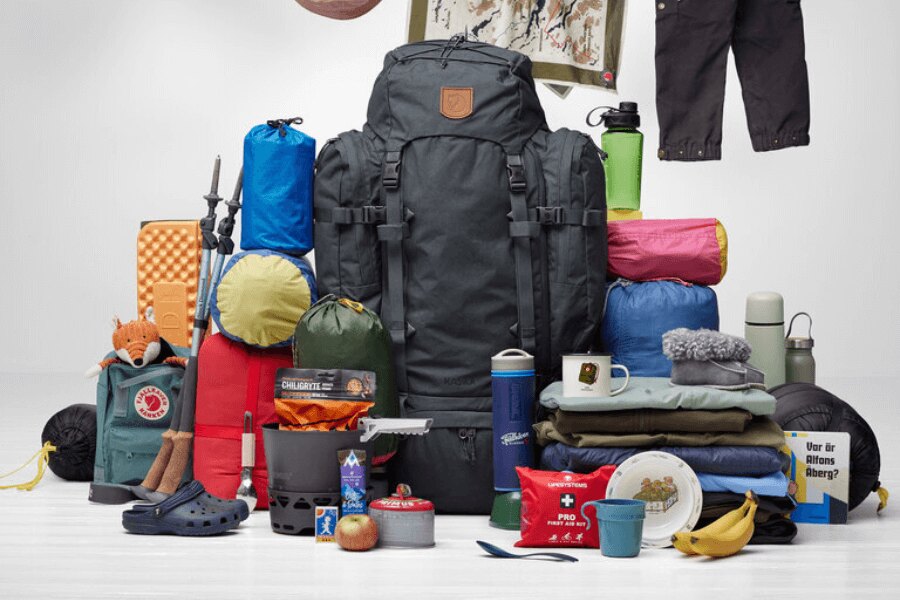
Fjällräven offers a wide portfolio of outdoor clothing, backpacks and luggage, accessories and other equipment. All these products are united by quality and sustainability.
In 1960, after completing the paratrooper course in Karlsborg, Åke threw himself into the outdoor business full-time and founded Fjällräven, which grew rapidly. But Åke was not only an entrepreneur, he was also an innovator, and so he came up with ideas such as an aluminum backpack frame or a double-skin tent, which proved successful in the harsh Nordic conditions and helped Fjällräven build a strong market position.
And then came the expedition to Greenland in 1966, during which the Fjällräven company tested thermal tents in extreme conditions, but paradoxically the idea for clothing also came from it. At that time, Åke had the idea to sew a jacket from a material that turned out to be too heavy for tents. The jacket worked great for him in nature, the only problem was the water resistance. And that's when Åke remembered how, as a young man, he used to wax his pants in addition to his slides before jumping on skis. The basis for the G-1000 material was born. And the iconic Greenland Jacket is still sold today.
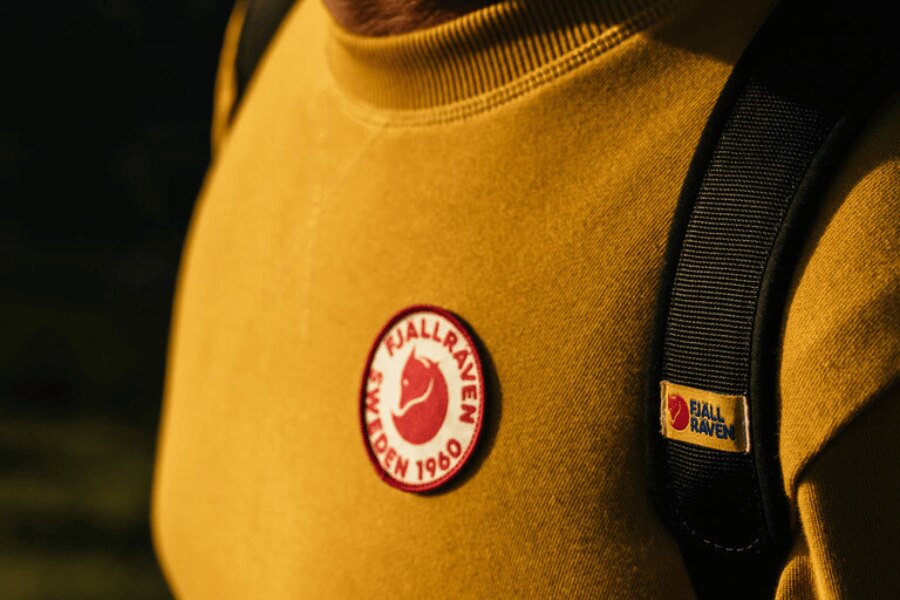
Do you already know why the fox on the Fjällräven logo covers its snout?
Why does the fox cover its snout?
Fjällräven means arctic fox in translation. When severe frosts hit, it covers its snout with its bushy tail and snuggles up tight. In this way, it can withstand temperatures falling to -60 ℃. The small animal's ability to adapt to extreme conditions interested Åke so much that the image of the arctic fox became the company's logo. Since 1994, researcher Anders Angerbjörn's Save the Arctic Fox project has been running.
Readers are further interested
